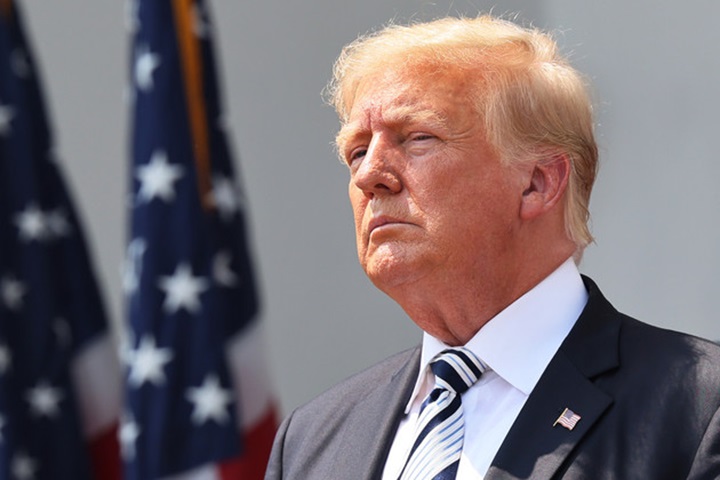The Centre for the Promotion of Private Enterprise (CPPE) has warned that the recent remarks made by former United States President Donald Trump about possible military intervention in Nigeria could have far-reaching economic implications, particularly on investor confidence and capital inflows. According to the organisation, such comments, though speculative, can unsettle the financial market and create unnecessary uncertainty in the investment climate.
Speaking through its Director, Dr. Muda Yusuf, the CPPE explained that international investors are highly sensitive to political rhetoric and threats, especially when they come from a figure with global influence like a former U.S. President. Yusuf noted that the comments could result in capital flight, foreign portfolio divestment, and exchange rate pressures, given how quickly sentiment shifts in the global financial landscape.

He said, “Such politically charged statements have the potential to disrupt capital inflows into developing economies. Even without direct policy action, mere speculation of instability can alter investment decisions, increase risk perception, and weaken the domestic currency. Nigeria’s economy, which is in the middle of a recovery process, cannot afford such distractions.”
The CPPE boss added that while the claims made by Trump were based on unverified reports of religious persecution, Nigeria’s challenges are far more nuanced, rooted in governance, inequality, and development issues. He urged that any concerns by foreign leaders be addressed through diplomatic channels and not through threats that could further strain Nigeria’s international relations.
According to Yusuf, Nigeria’s image as an investment destination is already delicate due to security challenges, infrastructural deficits, and regulatory uncertainty. Introducing an external threat, he said, would only deepen investor anxiety and drive up the country’s risk premium. “Multinational investors make decisions based on perceived stability. Any talk of military interference or instability can alter those perceptions overnight,” he stated.
He explained that over the years, the Nigerian economy has remained resilient, largely due to investor confidence and ongoing reforms in the oil, financial, and technology sectors. However, he said such fragile confidence could easily be eroded by reckless political statements from influential figures abroad. “What we need now is positive engagement and cooperation, not threats or unfounded accusations that undermine progress,” Yusuf added.
Economic analysts also echoed CPPE’s warning, saying that Trump’s comments could make foreign investors hesitant to commit new funds to Nigeria’s economy. They argue that the perception of political or military instability—even when baseless—can be damaging enough to trigger capital withdrawals and short-term volatility. This, they said, might pressure the naira, raise the cost of borrowing, and increase inflationary tendencies through imported goods.
Already, some global markets reacted mildly to the reports. A few Nigerian sovereign bonds recorded a temporary dip as traders speculated on potential geopolitical tension before stabilising later in the day. Experts described the move as a typical knee-jerk reaction driven by uncertainty rather than fundamentals, but cautioned that prolonged uncertainty could worsen outcomes.
The CPPE urged the Nigerian government to respond with diplomacy and transparency. It advised that authorities communicate Nigeria’s position clearly to international partners while strengthening bilateral relations with the United States. Yusuf also stressed that Nigeria’s foreign ministry should work closely with economic managers to prevent misinformation from escalating into diplomatic rifts.
He further called on local policymakers to intensify structural reforms to boost domestic investor confidence, arguing that when local investors are confident, external sentiment becomes less damaging. “We must build an economy that can withstand speculative shocks from abroad. This requires strong institutions, predictable regulations, and a stable macroeconomic framework,” he said.
Meanwhile, economists believe that despite the temporary unease caused by Trump’s statement, Nigeria’s economic fundamentals remain relatively strong. The ongoing fiscal reforms, renewed efforts to attract foreign direct investment, and strategic engagement with global financial institutions, they said, are likely to cushion any negative perception.
Yusuf, however, cautioned against complacency, stating that global investors watch how countries handle political situations. He emphasised the importance of consistent communication and sound macroeconomic management to prevent further damage. “We must not allow external political noise to derail our recovery. What matters is how we respond—calmly, diplomatically, and strategically,” he concluded.
The CPPE reiterated its call for stronger collaboration between the Nigerian government, development partners, and private sector leaders to project a unified message about the country’s stability and commitment to inclusive growth. It maintained that while the former U.S. President’s threat may lack substance, its ripple effects on investor psychology could be significant if not countered effectively.
As Nigeria continues to navigate its economic reforms under the current administration, the CPPE noted that investor perception will play a decisive role in determining capital inflows and economic performance. It urged the government to focus on stability, reform, and international cooperation rather than allowing political distractions to shape global narratives.
Support InfoStride News' Credible Journalism: Only credible journalism can guarantee a fair, accountable and transparent society, including democracy and government. It involves a lot of efforts and money. We need your support. Click here to Donate
